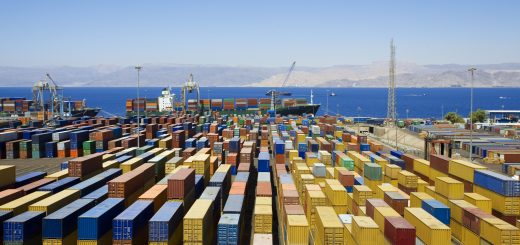WTO welcomes project in support of African Continental Free Trade Area
Director-General, World Trade Organisation (WTO) Ngozi Okonjo-Iweala has welcomed a new project aimed at helping eight African countries operationalize the African Continental Free Trade Area (AfCFTA).
Led by the Enhanced Integrated Framework (EIF), the United Nations Economic Commission for Africa (UNECA) and the International Islamic Trade Finance Corporation (ITFC), the project was launched at a virtual event on 10 March that brought together the Ministers of Trade of Niger, Senegal and Togo, and other government representatives of Burkina Faso, Guinea and Mauritania.
The project will support the implementation of more than 30 activities in the AfCFTA strategies of Burkina Faso, Côte d’Ivoire, Guinea, Mauritania, Niger, Senegal, Togo and Tunisia. By assisting the implementation of priority actions formulated by UNECA, the project will help to create an environment where trade can be more efficient and inclusive in the eight beneficiary countries.
“This programme illustrates the spirit of partnership needed to support the implementation of the AfCFTA,” said Dr Ngozi Okonjo-Iweala in her opening remarks. “Allow me to commend these institutions and programmes for demonstrating collaboration in tangible ways. At the end of the programme, the capacity of beneficiary countries will have been enhanced towards tangible outcomes, such as jobs and other economic opportunities.”
“This project represents the EIF’s importance in continuing to foster regional programming as well as deepening relationships with partners for their economic recovery,” said Mikael Anzén, Permanent Representative of Sweden to the WTO and Chair of the EIF Steering Committee. “It leverages UNECA’s extensive expertise and experience on the continent, building on the individual country strategies and the ITFC’s valuable trade skills.”
The AfCFTA seeks to bring about the establishment of a common framework and sets of standards across the African continent to ensure trade cooperation, harmonization and efficiency of countries’ trade relations. It entered into force on 30 May 2019 for the 24 countries that deposited their instruments of ratification by this date. The operational phase was launched on 7 July 2019.
The AfCFTA is expected to spur intra-African trade and to have positive spillover effects on trade among the African least-developed countries. It is also expected that the AfCFTA will pave the way for increased inter-African trade due to better access to the intercontinental market.
Source: portnews.com.ng



